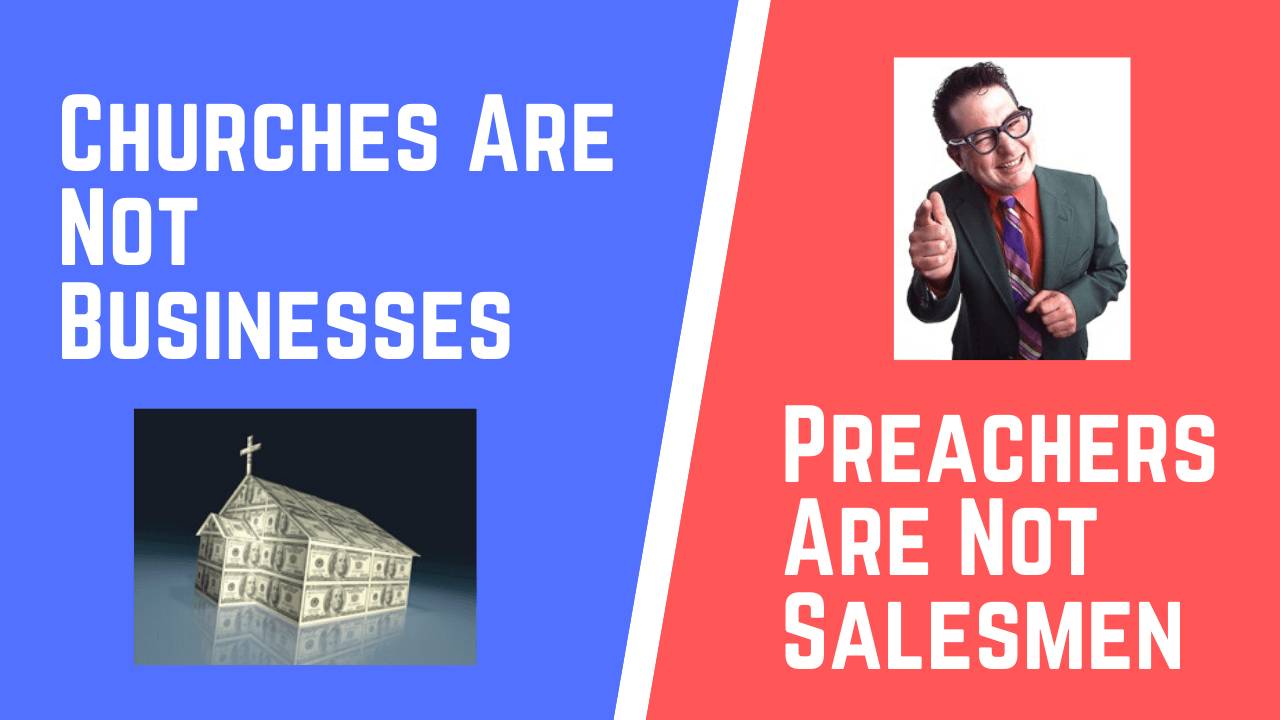Churches Are Not Businesses and Preachers Are Not Salesmen
Submitted by Pastor Chad Wagner on Sunday, November 3, 2019.| Attachment | Size |
|---|---|
| Churches are Not Businesses and Preachers are Not Salesmen.doc | 54.3 kB |
| Churches are Not Businesses and Preachers are Not Salesmen.PDF | 117.4 kB |

